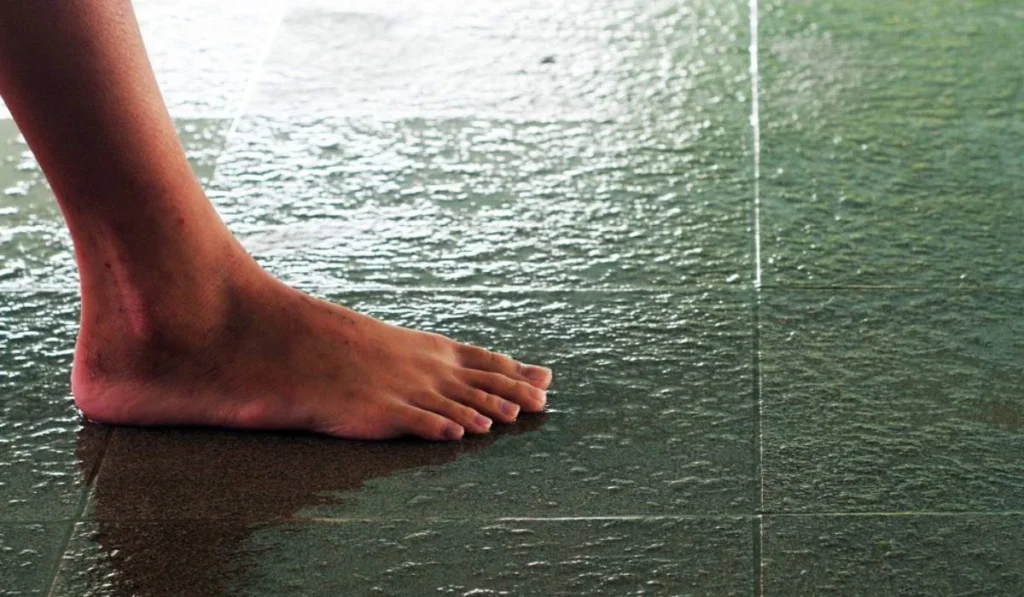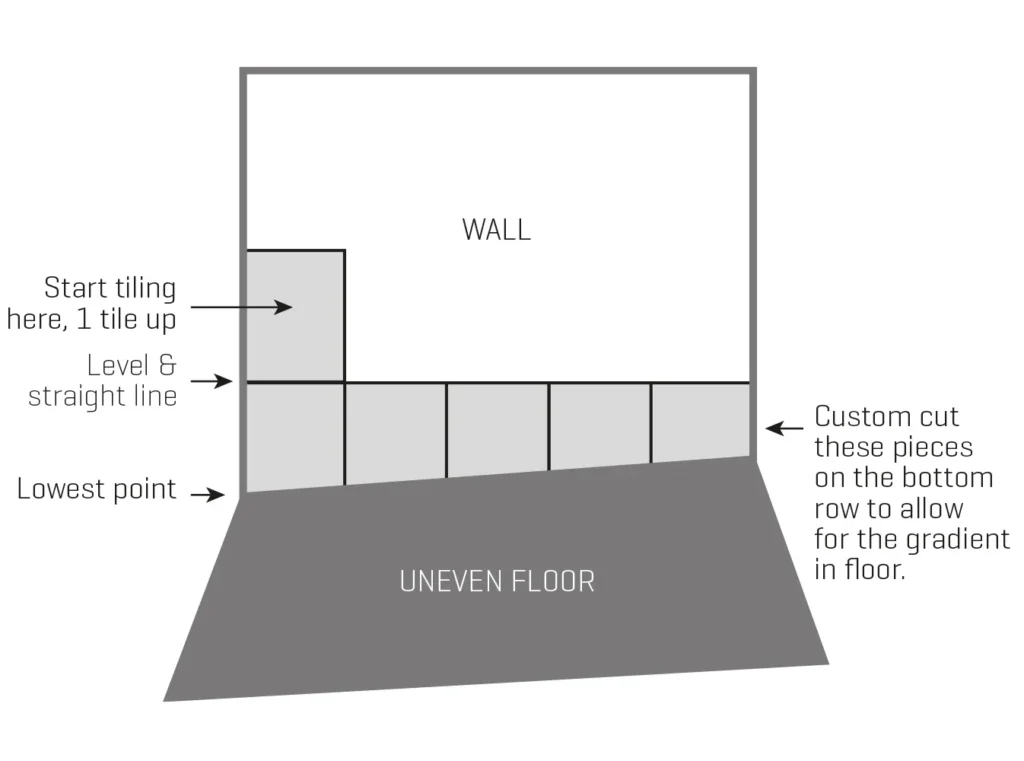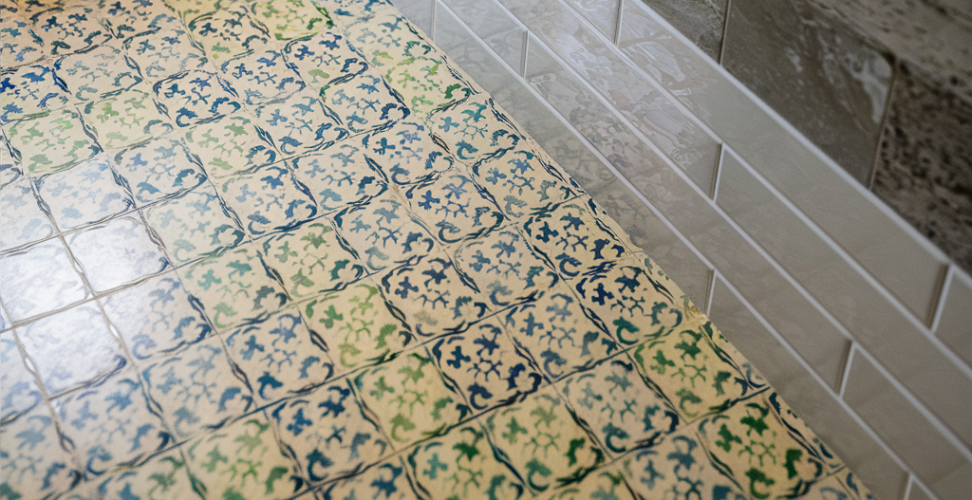Table of Contents
Choosing the right tiles for your home is more than just a matter of aesthetics; it’s about ensuring the durability, safety, and functionality of your spaces. Understanding the key differences between wall and floor tiles or floor tiles and wall tiles will empower you to make informed choices, creating a home that’s both beautiful and practical.
Material Composition: Porcelain vs. Ceramic Tiles
Porcelain Tiles for Flooring

porcelain floor and wall tile are the unsung heroes of flooring. Known for their exceptional durability, water resistance, and longevity, they are crafted from refined clay and fired at high temperatures. This process results in a denser and more robust surface, making porcelain tiles perfect for high-traffic areas where strength is essential.
Ceramic Tiles for Walls

Ceramic tiles, on the other hand, are the artists of the tile world. They bring vibrant and textured surfaces like the stunning Nue ceramic tile collection, transforming walls into works of art. Lighter and softer than porcelain, ceramic tiles are easier to install vertically, making them ideal for decorative wall applications. However, their lower water and stain resistance mean they are best kept off the floor.
Durability: Floor Tiles vs. Wall Tiles
Floor Tiles
Floor tiles are built to endure. Designed to handle the heavy foot traffic and daily wear and tear, these tiles are thicker and sturdier than their wall counterparts. While floor tiles can grace your walls with their strength, wall tiles lack the resilience needed for floors and are best left to vertical spaces.
Wall Tiles
Wall tiles are the delicate beauty of your home’s surfaces. Light and decorative, they add charm without bearing the brunt of constant impact. Perfect for bathroom walls, kitchen backsplashes, and other vertical spaces, they shine in areas where aesthetics are the focus.
Slip Resistance and Glazes
Importance of Slip Resistance

Safety is paramount, especially for floor tiles. A tile’s slip resistance score indicates its safety when wet or contaminated. This is crucial for commercial projects and residential areas alike, ensuring every step you take is secure. While high-gloss tiles can be stunning, they require careful placement and additional measures like floor mats in wet areas to prevent slipping. Bathroom wall tiles and floor tiles are also important for slip resistance, especially the floor tiles.
Glazed Tiles

Tiles come in various textures and glazes, each adding a unique touch to your home. For floors, a safe surface is non-negotiable. High-gloss porcelain tiles can be used on both floors and walls in residential areas, but raised surface tiles, like those in the Biscuit collection, should be reserved for walls to avoid tripping hazards.
Size and Thickness: Selecting the Right Tile
Size and Thickness for Walls and Floors

The modern tile market offers a plethora of shapes and sizes, catering to every design whim. Floor tiles are generally thicker and more robust, built to withstand the stress of foot traffic. Wall tiles, designed to be lighter, reduce strain on vertical structures, making them perfect for creating beautiful, intricate designs on your walls.
Versatile Tile Solutions

Some tiles, like the Bisazza Smalto glass mosaic collection, are versatile enough to grace both floors and walls. These tiles, with their wide range of colors, can even enhance swimming pools, offering endless possibilities for your design needs.
Conclusion
The differences between floor and wall tiles are essential to understand for anyone looking to enhance their home’s beauty and functionality. Porcelain tiles, with their durability, are ideal for floors, while ceramic tiles, rich in decorative appeal, are perfect for walls. By understanding these distinctions, you can make choices that ensure your tiles not only look stunning but also serve their purpose effectively. Let our team at Perini Tiles guide you through our extensive collection, helping you find the perfect tiles to meet your specific needs and bring your vision to life.
People Also Ask
Are wall tiles the same as floor tiles?
No, wall tiles are generally lighter and less durable than floor tiles. They are designed for vertical surfaces and decorative purposes.
Can I use wall tiles for the floor?
No, wall tiles are not suitable for floors as they are thinner and less robust, making them unable to withstand the weight and foot traffic that floor tiles can handle.
Is there a difference between floor tile and bathroom tile?
Bathroom tiles can be used for both walls and floors, but floor tiles in bathrooms often have higher slip resistance. Floor tiles used in bathrooms need to be water-resistant and durable, while wall tiles can be more decorative.
What is the difference between wall tile and floor tile grout?
Floor tile grout is typically stronger and more resistant to wear and moisture, as it needs to withstand heavy traffic and cleaning.
Wall tile grout can be less durable and often comes in a wider variety of colors for decorative purposes.




